The rumbling sound is low and persistent, its origins a mystery. We are skinning next to the vast, frozen Eklutna Lake and, even though we’re miles from the nearest road, it almost sounds like someone is listening to music with heavy bass off in the distance. The rhythm matches my steps for a time, then switches beat. Every few minutes the rumble is so pervasive I can feel it in my bones.
We choose to visit one of our favorite places for Jordan’s 40th birthday. With good friends living in Anchorage, and the Iditarod happening on Jordan’s birth-anniversary, a trip to Alaska to mark the new decade is a no-brainer. After enjoying the hell out of the Iditarod, we are setting off for Yuditna Cabin on the southeast side of Eklutna Lake.
Our friends kindly accompany us on the 3+ mile traverse into the cabin. Jordan pulls a heavy sled laden with the essentials for three days in an electricity- and plumbing-free cabin: firewood, extra warm sleeping bags, insulated sleeping pads, a box of Biscuik, and a cast iron frying pan. Going without breakfast biscuits, even in the backcountry, is unfathomable.
Unable to find another sled at any of the six stores we visit in town, I pull the only thing we could find: a small cafeteria tray. It only has one hole, and makes a strange squiggly mark in the snow as I stride. Still, I can feel the impact of 20 extra lbs, and I can’t imagine how Jordan is pulling 75+.

Jordan drags a sled into the cabin. 
My sled has a case of the squiggles. 
A happy couple at their cabin.
We arrive to find a small, dark cabin with a table, two bunks, and a round stove inside. Our friends stay for a few photos, then need to head back with their 9-month old before it gets too dark. Soon we are alone. Two Tursis and a vast, frozen lake.
We haven’t braved the ice, but we can see snowmobile tracks. With a few hours remaining before dark, we decide it looks safe enough and slowly, ever so carefully, we glide out onto the the surface of the frozen lake. We’re no more than 500 feet from the cabin when we experience the sensation once again, only we feel the deep throbbing bass now more than we hear it. We make it across the lake and back in one piece.
The morning greets us with beautiful sunshine and we make biscuits and bacon sandwiches to celebrate. We’re out the door at the crack of 11:30am to stride once again across the lake, searching in earnest for sweet Alaskan pow.

Now we’re cooking! 
Skiing here we come! 
Not a bad place to spend an afternoon.
To cut to the chase: there is no Alaskan pow. Not even a little bit. There IS Alaskan broken ski boots and Alaskan piles of moose doody and Alaskan slide alder that, even though I’ve encountered alder plenty in Washington, is somehow still bigger and gnarlier and even more inconvenient. We struggle mightily for what feels like many thousands of feet but is probably only hundreds of feet. The effort takes us a depressing amount of hours nonetheless. After a time we call it, make two good turns, then hop back on the struggle bus to get back to the lake. Eventually, we remove our skis and walk out.

Since J is turning 4-0, we think renaming “Gold Creek” to “Old Creek” is only appropriate. 
It will get worse from here. 
Moose droppings. 
Pretending to be having a good time. 
The two turns below this were okay. Then… walking.
(That’s right, we have skis but we walk. It is that bad.)
So we do what any smart couple would do: whip together one or two or six Alpine Gimonades and slide around on the ice, now completely comfortable in our frozen landscape (later we will discover that three inches will support one person on foot, and seven and a half inches is enough for a passenger car. We’re easily on 14″ here, enough to support a bus). We make dinner and bask in a beautiful sunset and fall asleep as soon as the colors fade to black. You can sleep as many hours as you want while on vacation. I want 13 hours thankyouverymuch.

Day drinking slip and fall. Oopsie. 
I’m a unicorn goddamit! 
Sunset for days.
The next day I read a book. In one sitting. It’s so luxurious I hardly know what to do with myself, so I make a deck of cards out of leftover writing paper and proceed to lose three games of gin in a row. We run out of liquid gin for Alpine Gimonades though, so early bed time again.
On our last morning,we say goodbye to our Alaskan respite as sun begins to kiss the sky. I’m sad to say goodbye, but I’m grateful to have filled up my soul yet again. On the skin out, the deep rumbling of the ice brings only comfort, propelling us forward like a beating heart toward our next great adventure.
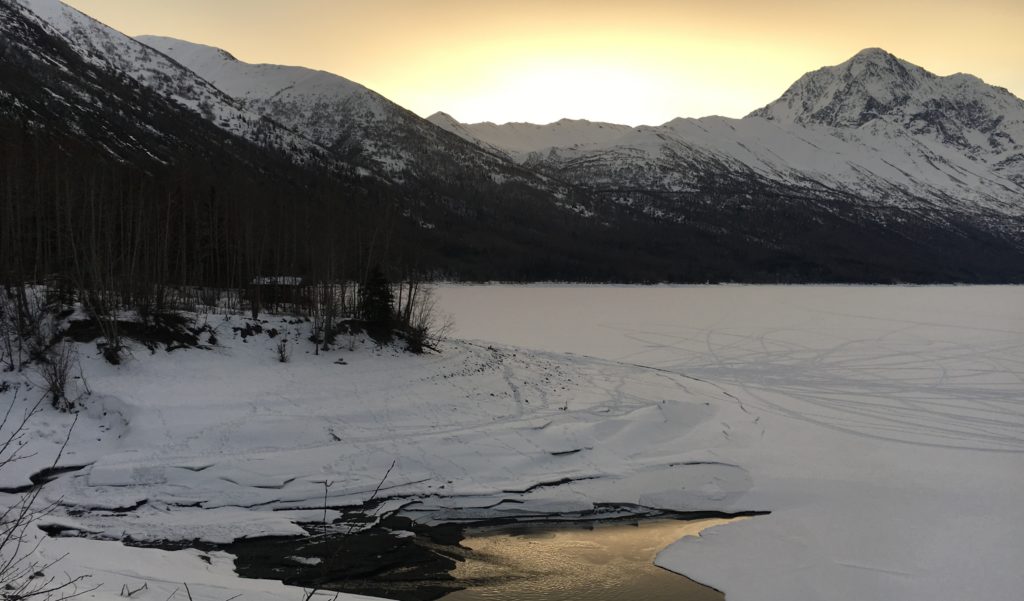
p.s. When we got home, we were finally able to look up the phenomena of the deep bass sounds on frozen lakes. Turns out that as more ice freezes, the top sheet becomes heavier, and since ice is denser than water the overall level of the lake drops and the top sheet sinks, cracking along the seams and calving at the edges. The resulting ice sheet is like a giant membrane that the sound travels across, which creates the deep rumbling as the ice cracks and shifts.

Shifting ice creates a downward ramp at the edges of the lake. 
More giant ice cracks.

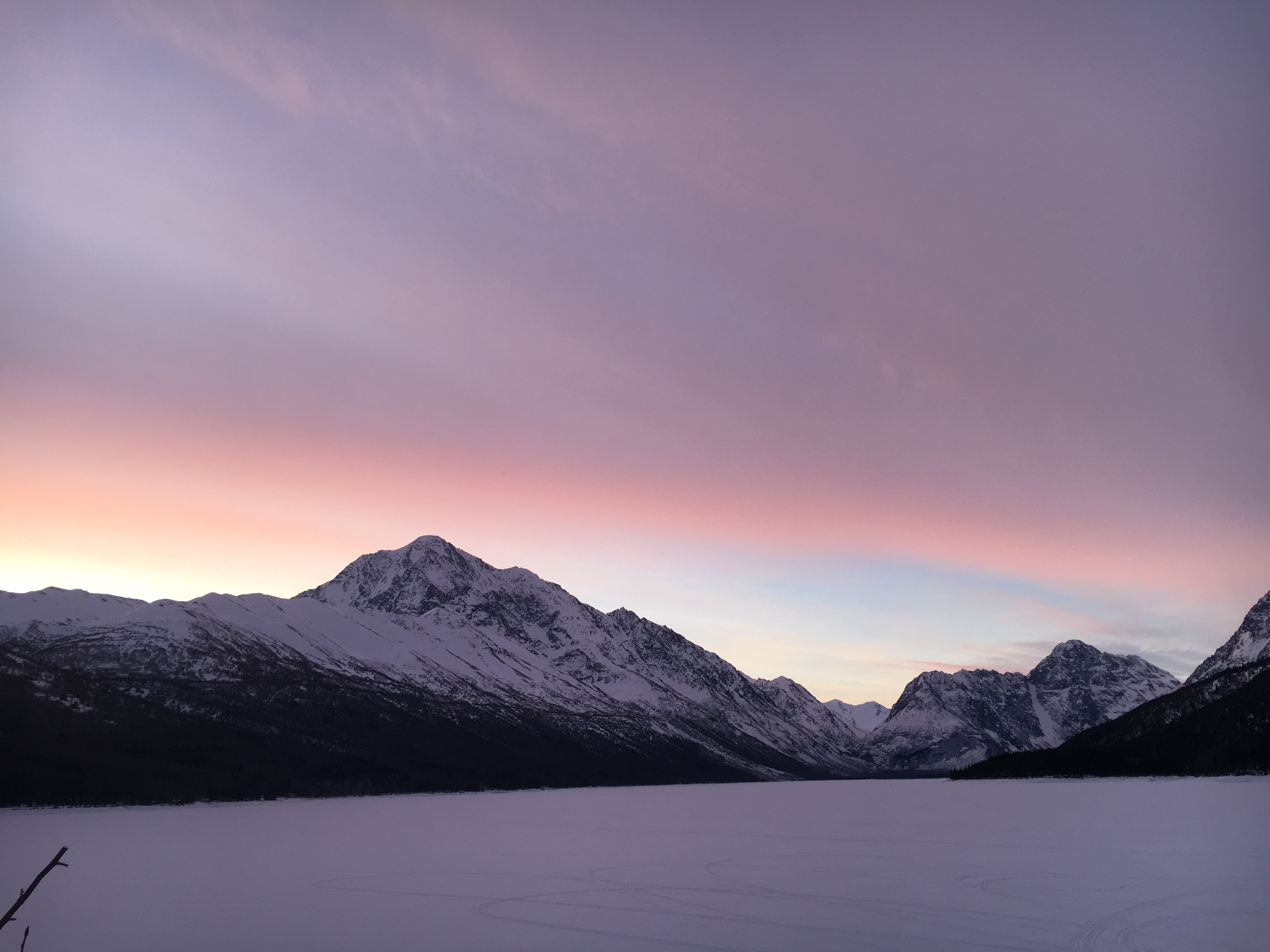
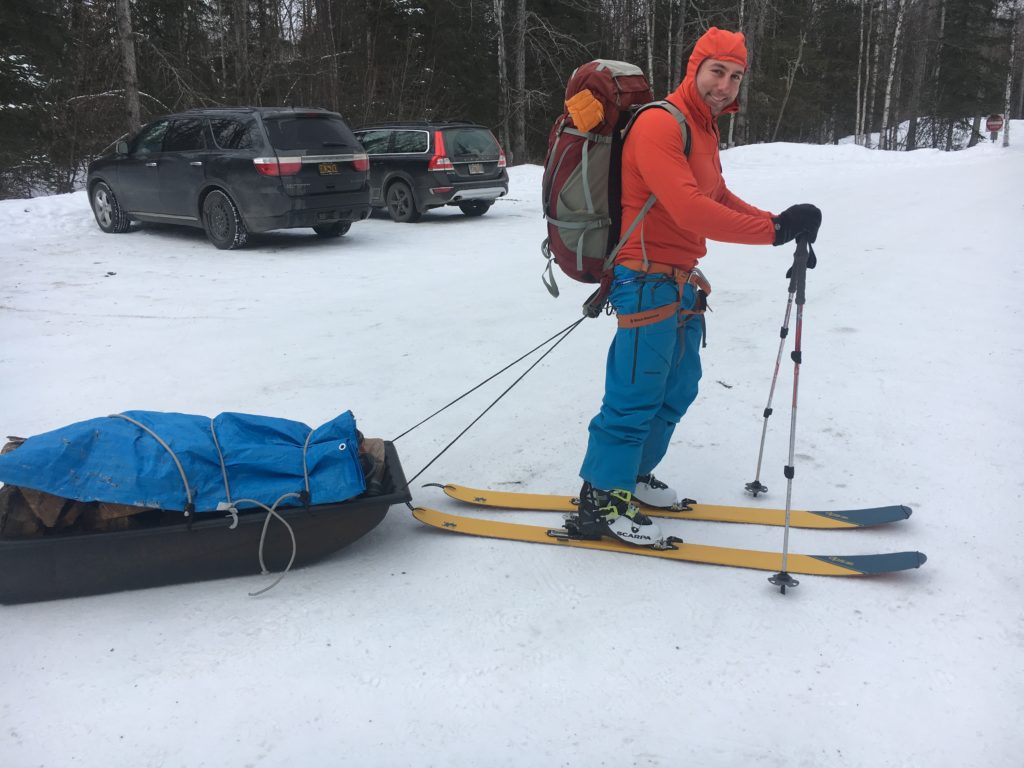
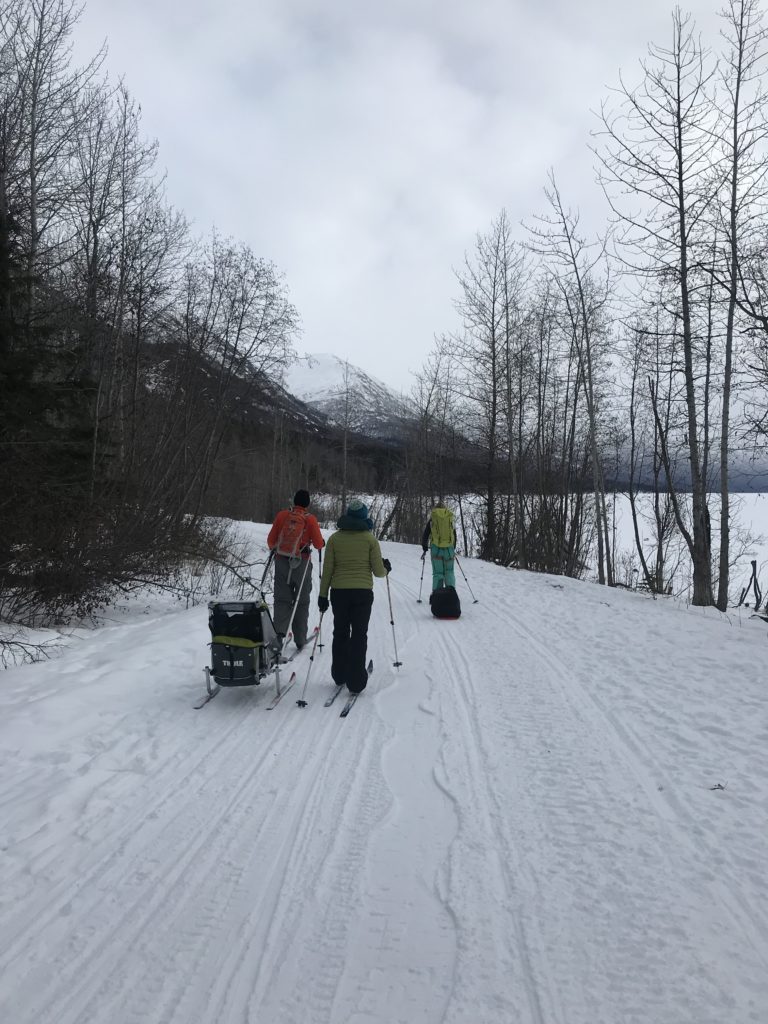
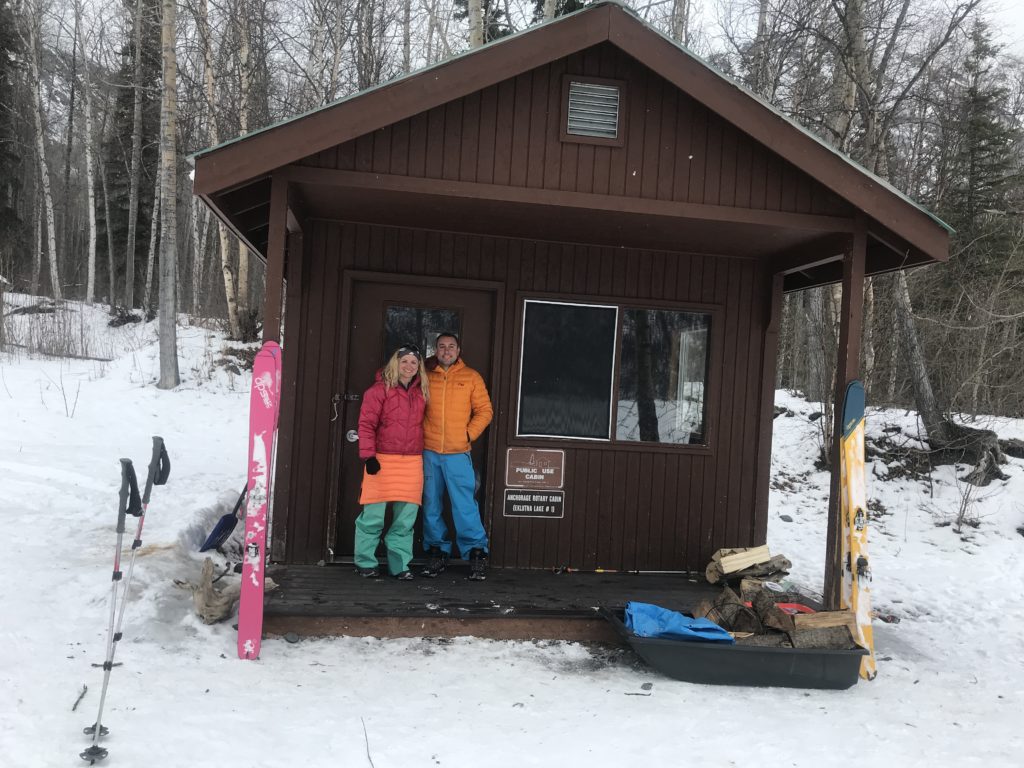
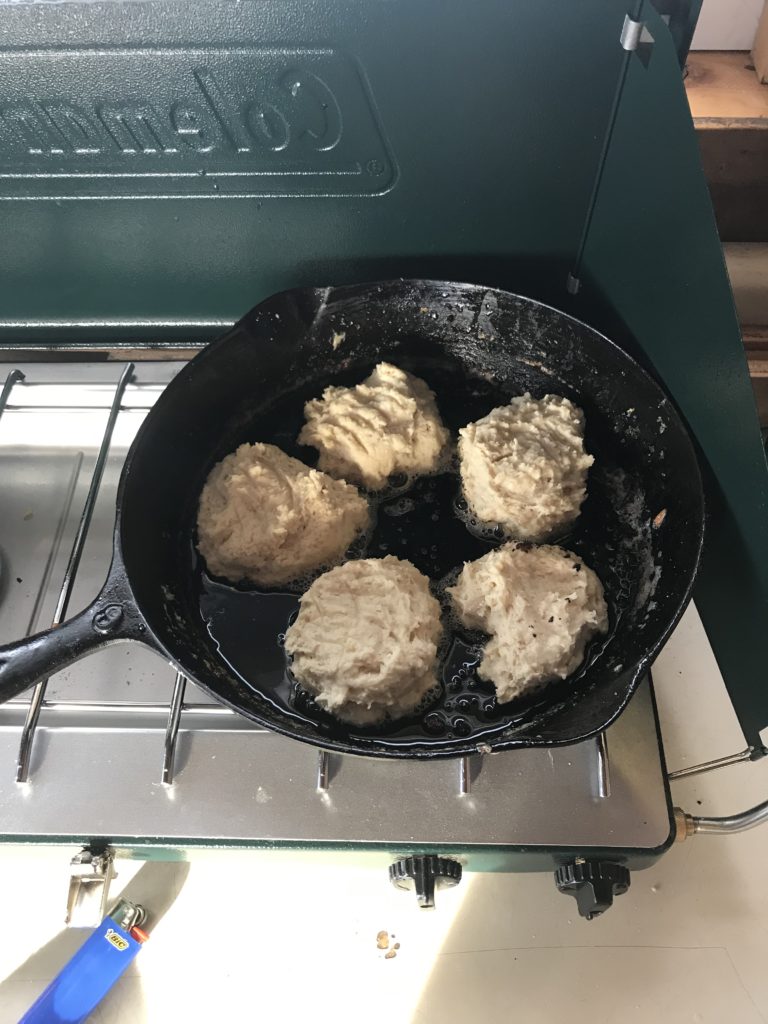
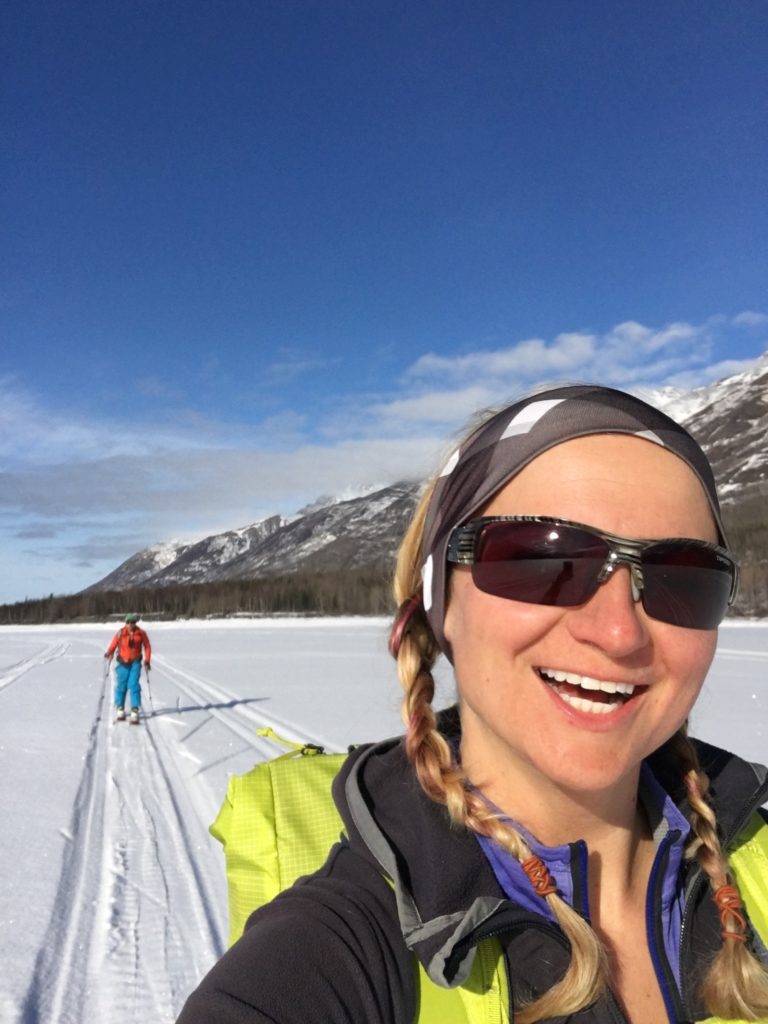
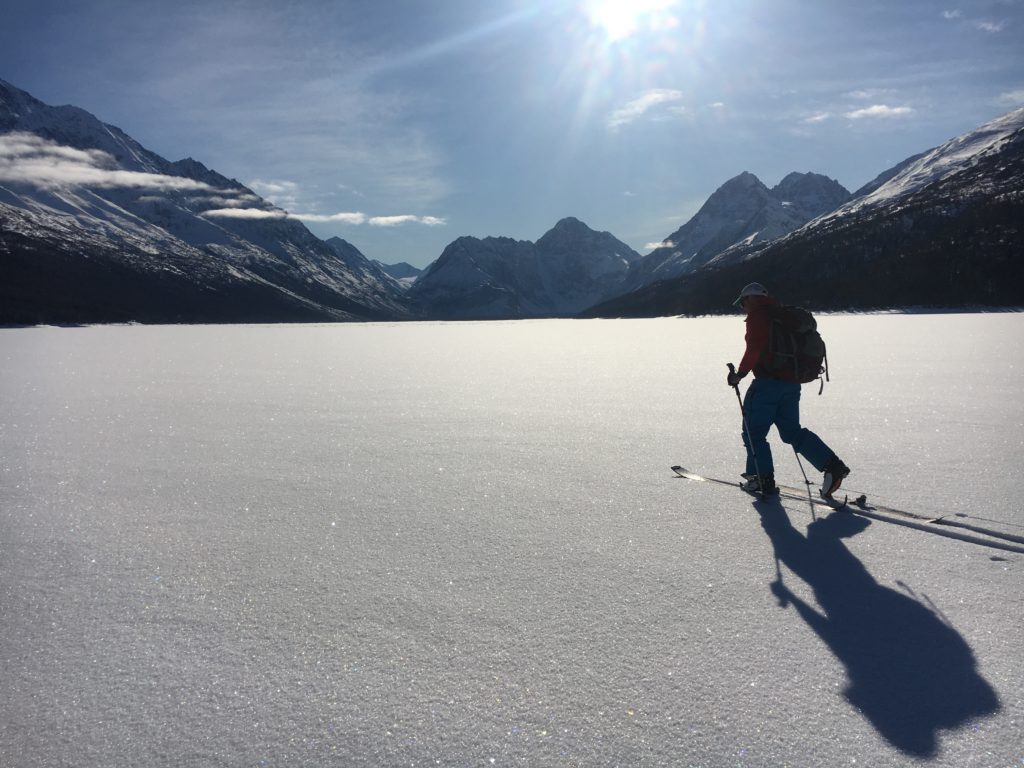
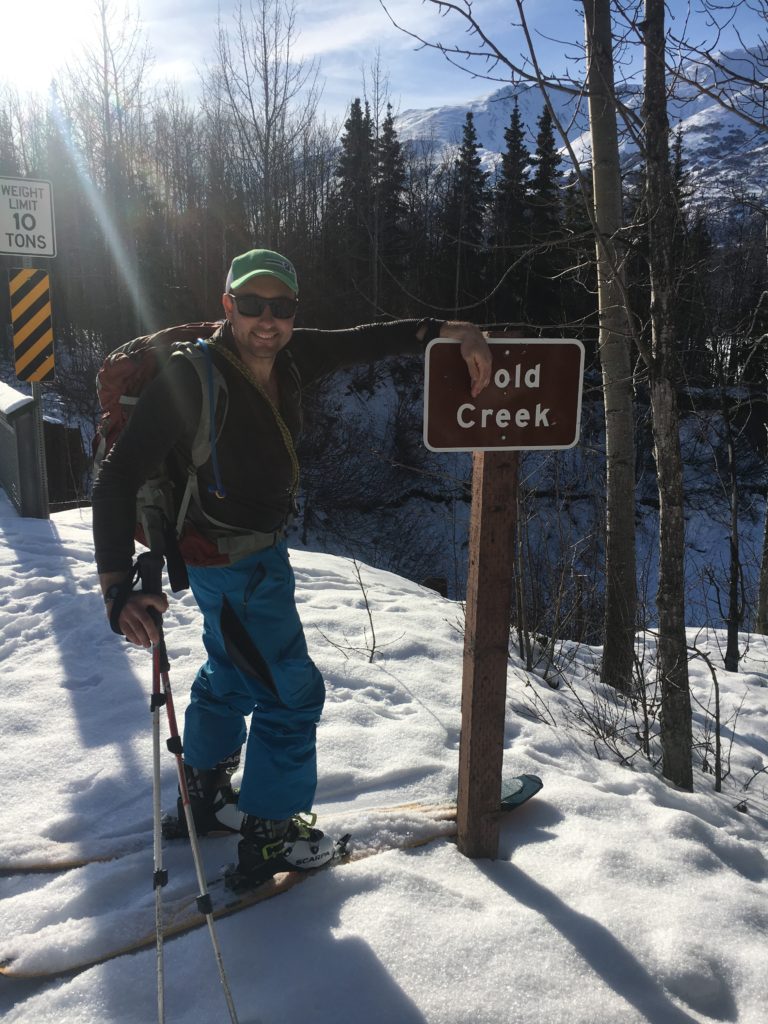
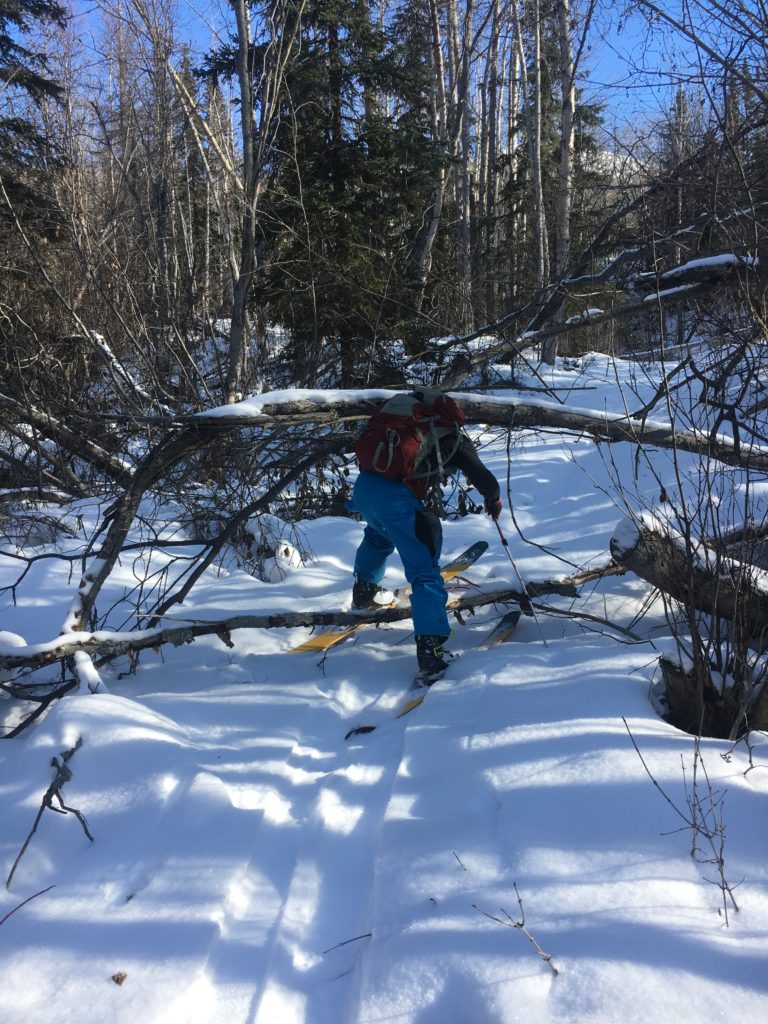
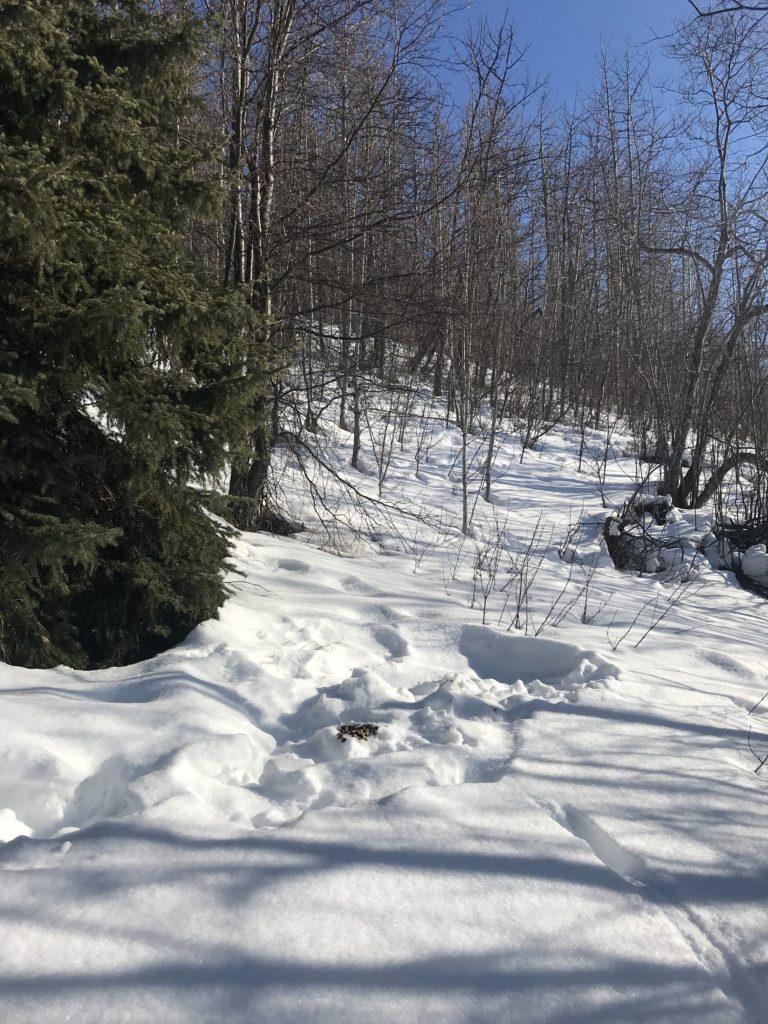
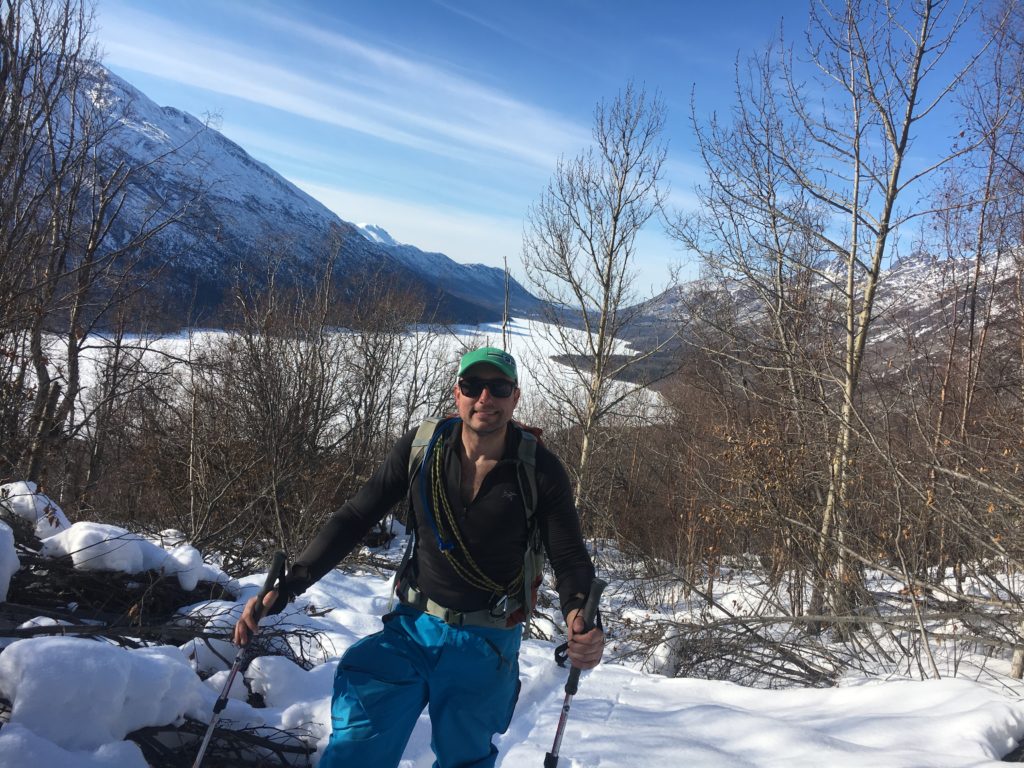
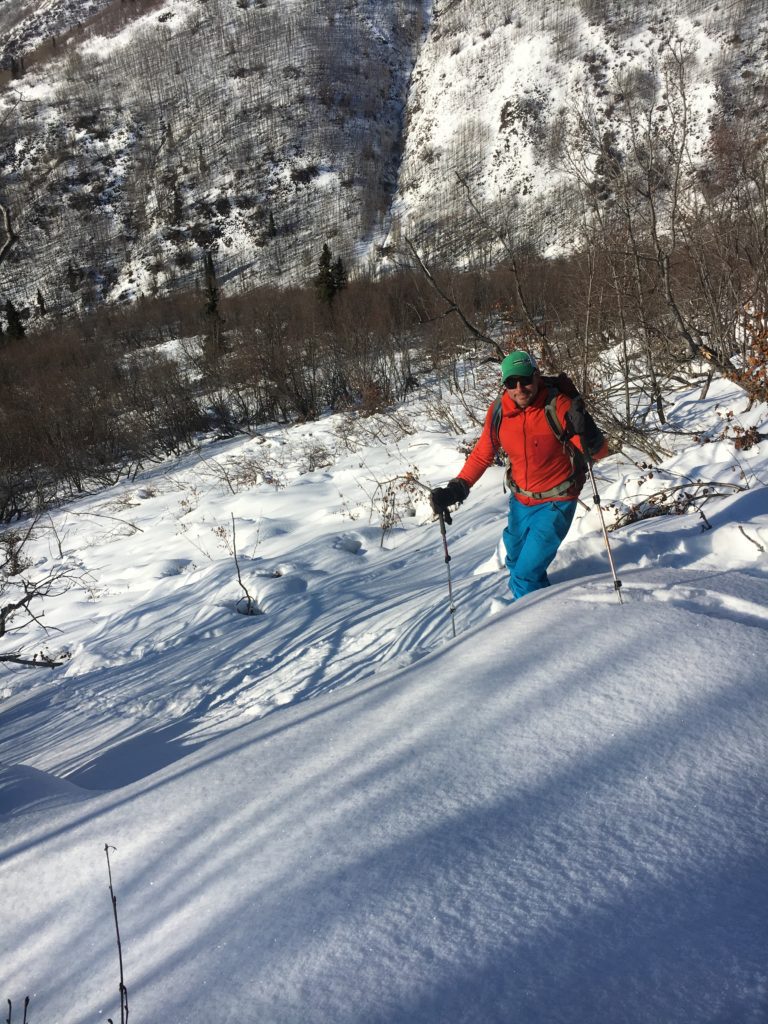
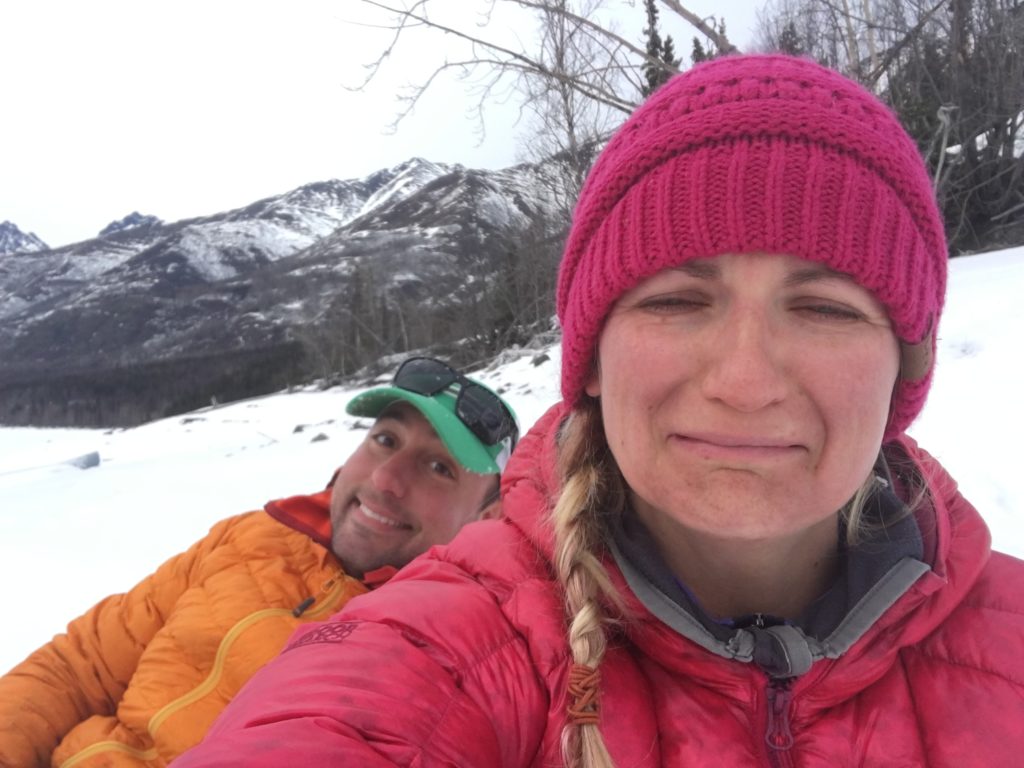
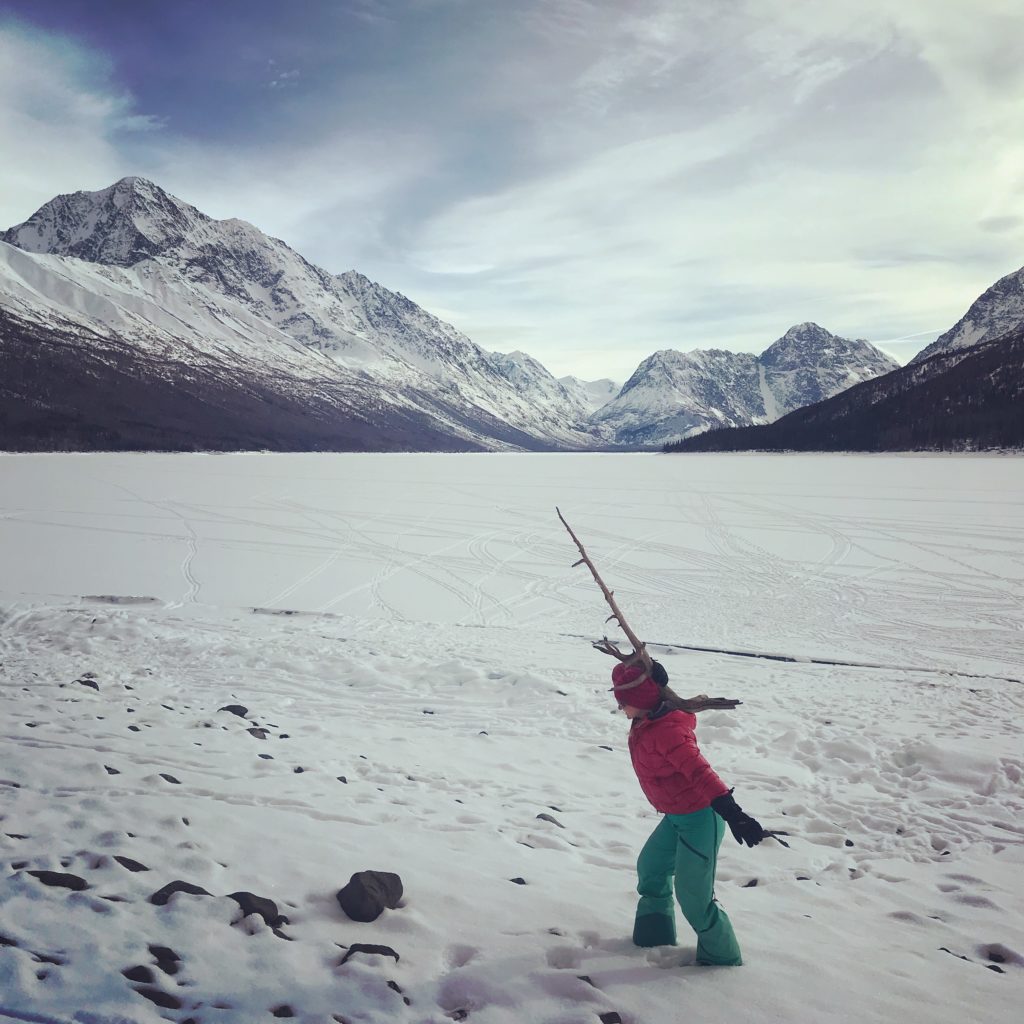
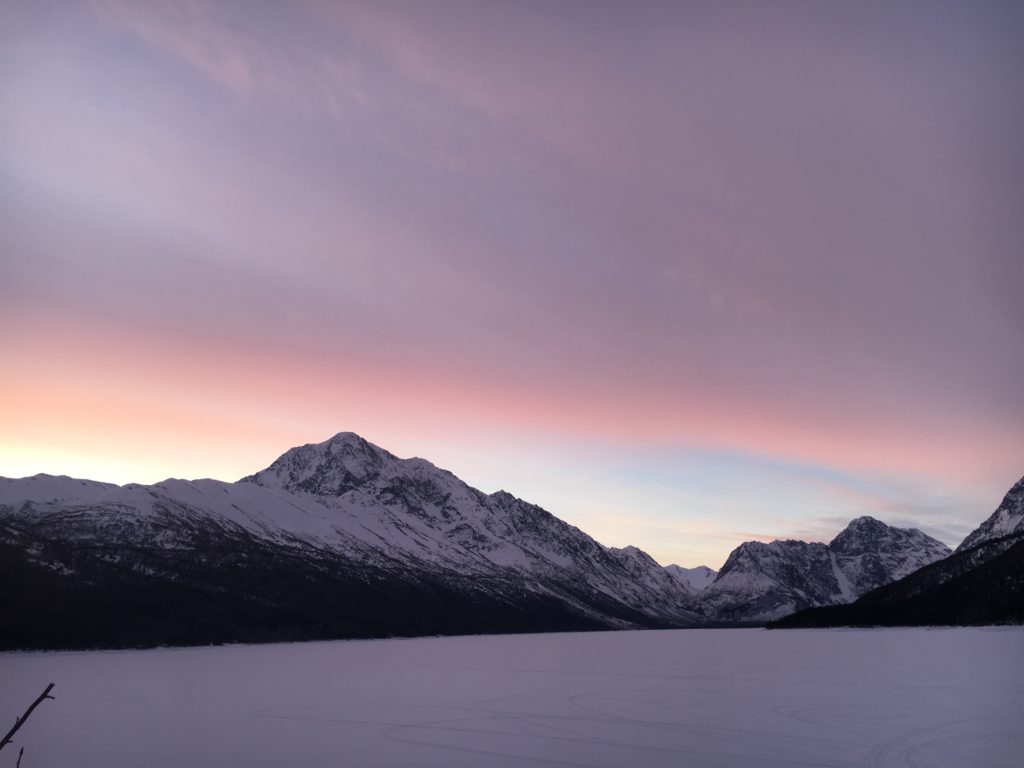
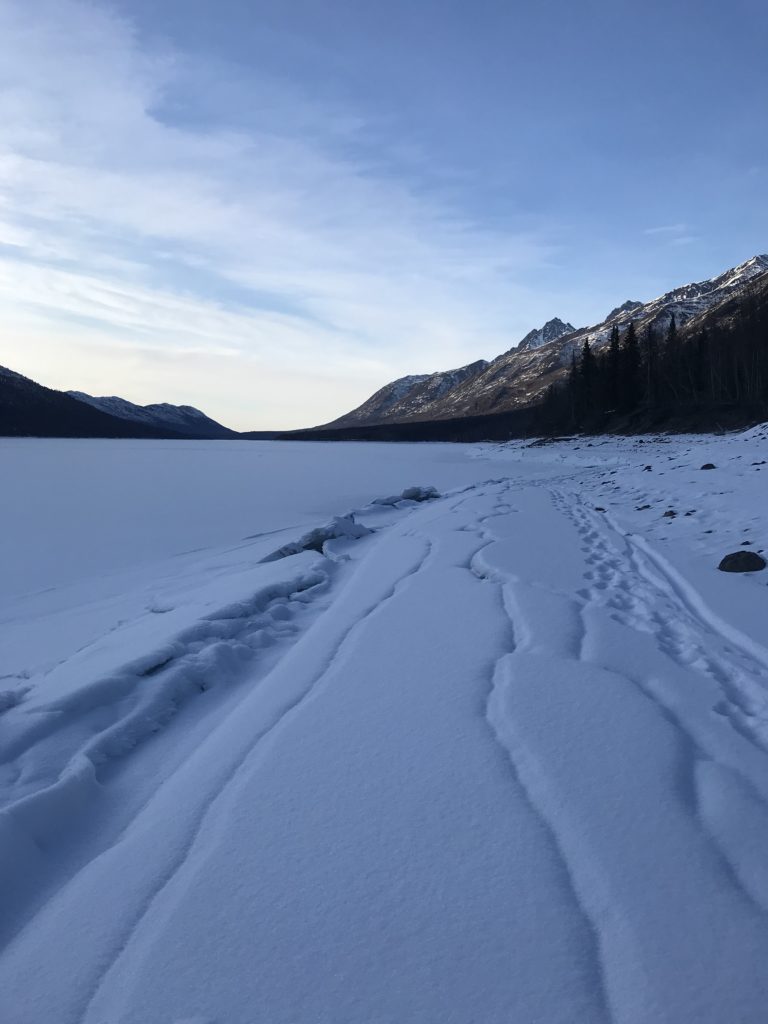
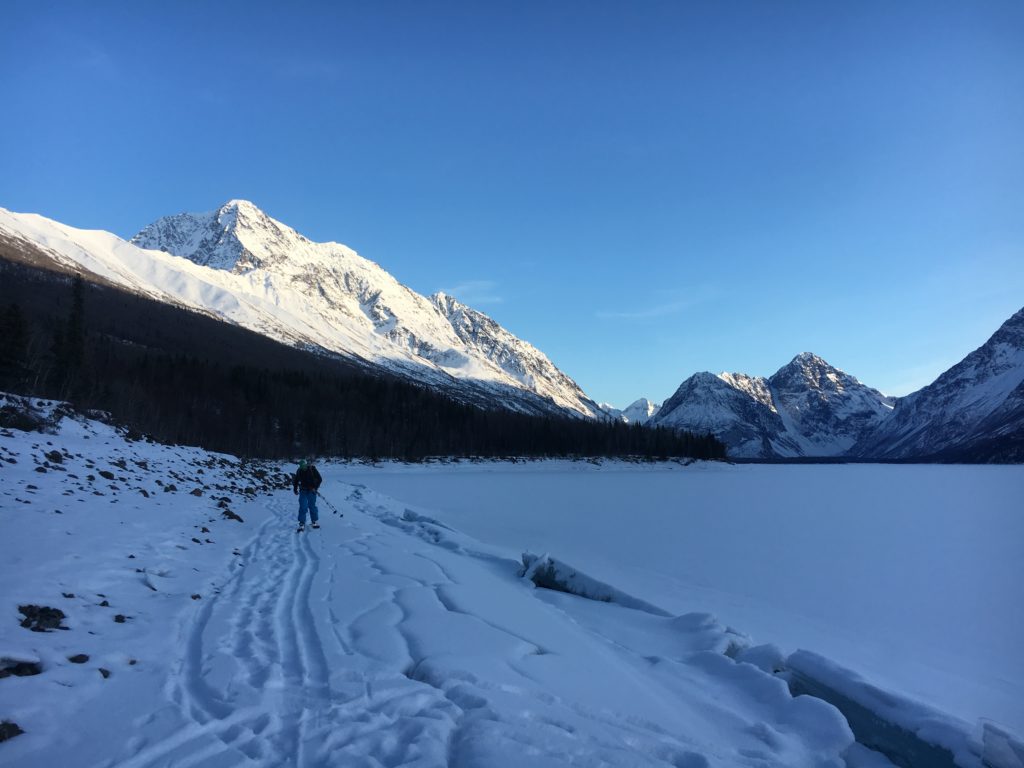





Trackbacks/Pingbacks